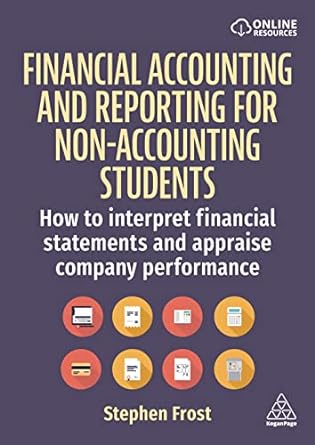Question
Question: In the intricate landscape of modern business, accounting serves as the bedrock upon which financial decisions are made, guiding enterprises through a labyrinth of
Question:
In the intricate landscape of modern business, accounting serves as the bedrock upon which financial decisions are made, guiding enterprises through a labyrinth of transactions, regulations, and economic fluctuations. Considering the multifaceted nature of accounting, let's delve into a comprehensive inquiry that explores various dimensions of this discipline.
Accounting, often described as the language of business, encompasses a myriad of concepts, methodologies, and principles that underpin the financial fabric of organizations. With the evolution of technology and the global interconnectedness of markets, accounting practices have become increasingly sophisticated. From traditional methods to cutting-edge software applications, businesses today are presented with a plethora of accounting tools.
In light of this complexity, this question aims to unravel the nuances of accounting, touching upon fundamental concepts and advanced strategies alike. Let's begin by examining the foundational principles of accounting:
Double-Entry Bookkeeping: Explain the fundamental principle of double-entry bookkeeping, elucidating how this method ensures the accounting equation (Assets = Liabilities + Equity) remains balanced. Provide illustrative examples to demonstrate the application of double-entry bookkeeping in real-world scenarios.
Accrual vs. Cash Basis Accounting: Delve into the differences between accrual and cash basis accounting. Elaborate on the advantages and disadvantages of each method, considering factors such as revenue recognition, financial statement accuracy, and compliance with accounting standards. Additionally, discuss situations in which one method might be preferable over the other for businesses operating in diverse industries.
Financial Statements Analysis: Explore the significance of financial statements (Income Statement, Balance Sheet, and Cash Flow Statement) as vital tools for assessing a company's performance and financial health. Discuss key financial ratios derived from these statements, such as liquidity ratios, profitability ratios, and leverage ratios. Interpret how these ratios provide insights into an organization's liquidity, profitability, and overall stability. Include real-world examples to illustrate the practical application of financial statement analysis in decision-making processes.
International Financial Reporting Standards (IFRS) vs. Generally Accepted Accounting Principles (GAAP): Compare and contrast IFRS and GAAP, delineating the major differences in principles, standards, and reporting requirements. Analyze the implications of these differences for multinational corporations, considering aspects such as financial reporting consistency, regulatory compliance, and investor confidence. Provide case studies or examples of companies navigating the challenges posed by the coexistence of IFRS and GAAP in international business operations.
Forensic Accounting and Ethical Considerations: Explore the realm of forensic accounting, shedding light on its role in detecting and preventing financial fraud, embezzlement, and other white-collar crimes. Discuss the ethical considerations that forensic accountants must uphold while investigating financial irregularities, ensuring the integrity of their findings in legal proceedings. Highlight notable cases or industry best practices that exemplify the ethical challenges faced by forensic accountants and the strategies employed to maintain objectivity and professionalism.
Impact of Technology on Accounting: Investigate the transformative influence of technology on accounting practices, considering the rise of artificial intelligence, machine learning, blockchain, and cloud-based accounting software. Evaluate the advantages of these technological advancements, such as automation of routine tasks, enhanced data accuracy, and real-time financial reporting. However, also address the challenges and risks associated with technology in accounting, including data security concerns, skill gap among accounting professionals, and the need for continuous adaptation to evolving software solutions.
Sustainable Accounting and Corporate Social Responsibility (CSR): Discuss the emerging field of sustainable accounting, emphasizing its pivotal role in evaluating a company's environmental, social, and governance (ESG) performance. Explore the integration of CSR initiatives into financial reporting, examining how businesses quantify and communicate their environmental and social impacts. Evaluate the challenges faced by companies in measuring and reporting non-financial performance metrics, considering factors such as standardization, stakeholder expectations, and regulatory compliance. Provide examples of organizations leading the way in sustainable accounting practices and the positive outcomes they have achieved in terms of brand reputation and investor relations.
In summary, this multifaceted question navigates the diverse terrain of accounting, from its foundational principles to its cutting-edge applications and ethical considerations. By addressing these intricacies, we gain a comprehensive understanding of the pivotal role accounting plays in shaping the financial landscape of contemporary businesses and society at large.
Step by Step Solution
There are 3 Steps involved in it
Step: 1

Get Instant Access to Expert-Tailored Solutions
See step-by-step solutions with expert insights and AI powered tools for academic success
Step: 2

Step: 3

Ace Your Homework with AI
Get the answers you need in no time with our AI-driven, step-by-step assistance
Get Started


